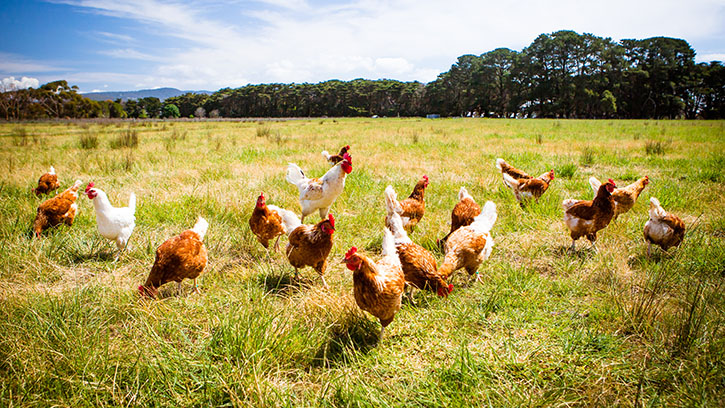The mandatory housing measures for poultry and captive birds, which were introduced across the United Kingdom to help stop the spread of bird flu, will be lifted from 12.01am on Monday, May 2, the Chief Veterinary Officers have confirmed today.
Poultry and other captive birds will no longer need to be housed, unless they are in a Protection Zone, and will be allowed to be kept outside.
While the risk of bird flu has been reduced to ‘medium’ for premises with poor biosecurity, the enhanced biosecurity requirements that were brought in as part of the Avian Influenza Prevention Zone (AIPZ) will remain in force as infection may still be circulating in the environment for several more weeks. All poultry gatherings will remain banned.
Those who intend to allow their birds outside are advised to use the upcoming days to prepare their outside areas for the release of their birds. This will include cleansing and disinfection of hard surfaces, fencing off ponds or standing water and reintroduction of wild bird deterrents.
The UK has faced its largest ever outbreak of bird flu with more than 100 cases confirmed across the country since late October.
In a joint statement, the four Chief Veterinary Officers said: “Whilst the lifting of the mandatory housing measures will be welcome news to bird keepers, scrupulous biosecurity remains the most critical form of defence to help keep your birds safe.
“It is thanks to the hard work of all bird keepers and vets, who have played their part in keeping flocks safe this winter, that we are in a position to take this action. However, the recent cases of avian influenza show that it’s vital that bird keepers remain vigilant for signs of disease and maintain stringent standards of biosecurity.”
NFU poultry board chair James Mottershead added: “Poultry farmers have worked incredibly hard to minimise the threat of Avian Influenza and it will be a great relief that they can now allow their birds outdoor access again.
“While the threat of Avian Influenza has reduced, it is still incredibly important that everyone who keeps birds remains vigilant and continues to follow enhanced biosecurity measures. This is crucial whether you are a commercial farmer with thousands of birds or a backyard keeper with one hen in the garden.”


